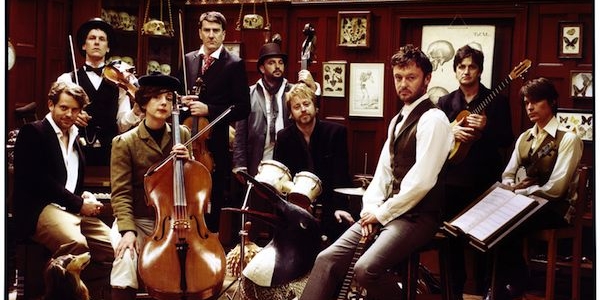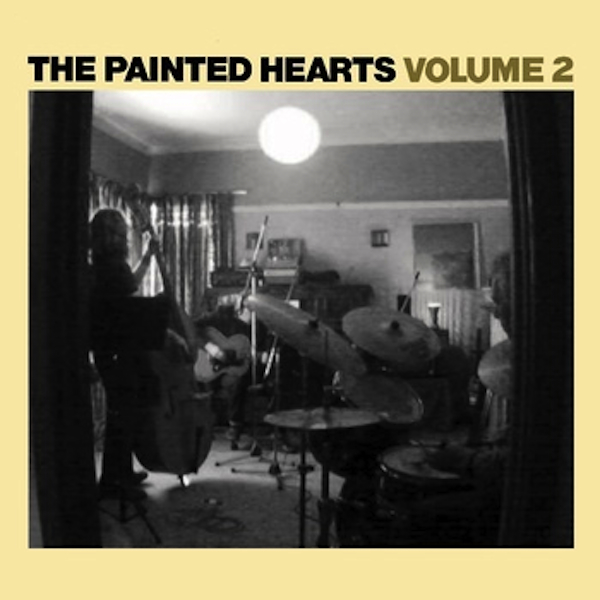Penguin Café Orchestra were a classical/ folk/ modern jazz collective that ran from the early ‘70s until the death of founding member Simon Jeffes. They played the kind of music that’s often compared to Phillip Glass and praised by Brian Eno types. This is worse than damning with faint praise, it’s damning by the association of Glass and Eno, their music has the high-minded, intellectual credibility but no heart, it lives in the head and I find myself not pushing play twice. But listen to Penguin Cafe Orchestra’s Telephone and Rubber Band or Perpetuum Mobile, you’ve already heard it I promise, it is odd, intellectual and most importantly enjoyable.
Simon Jeffes’ son has both struck out on his and followed his father; he has revived Penguin Café and recorded new material, a very dangerous combination for a band with such a specific sound and fan base. “It could have gone horribly, horribly wrong”, Arthur Jeffes explains of his decision to toy with his father’s legacy. “It was always a risk, from the outset it was always very difficult to put into words just why this was a good idea and why it was something that should just be avoided at all costs. The last thing I wanted to do was in anyway dilute or muddy the waters of what my dad had managed to do and invent. The whole point of doing it is to celebrate my dad’s music, it’s a lovely thing. It is a uniquely odd position we now find ourselves in, on paper it didn’t make sense in terms of taste and decency but on the ground when it happened it proved impossible not to do, any one step along the way seemed perfectly reasonable. It only seems like a leap when you step back and look at the ark of the story.”
More than anything else, you get the sense in talking to Arthur, that this is not an ego driven project, it seems purely driven by his love and loss of his father. “Growing up if I wanted to avoid doing homework or tiding my room I was always allowed to just play the piano, that was always a morally ‘good’ thing to do according to my parents,” Arthur says of his start in music. “Often for me and my Dad, we would spend time together on the school run, dropping me off we would find albums that we both thought were brilliant, so I have still got a very strong soft spot for New Orleans R&B like Professor Longhair, Dr John, we listened to a lot of Phillip Glass. My father’s albums were always around and I loved listening to them but there was something very particular about the live experience. As a small child there was something incredibly amazing to see an audience beyond counting and them all clapping. During the concert I would be really excited at the beginning but then towards the end of the first half I would almost certainly fall asleep but in a nice and comforting way.” His reforming of the band is a way to recapture that. “Now when we play the music in a live concert once again, it’s like going back to my childhood and being terribly, terribly content. This remains the real treat for me, everything was so silent for 10 years after my dad died. So when I first did some concerts with my dad’s old band, to hear it live again was such a treat, like an old friend coming home.”
As lovely and sad as it is to hear Arthur talk with such passion of his father’s work, life is not Tim Burtons Big Fish, reforming a band can’t be one’s exercise in self-indulgence. Thankfully it isn’t. “I didn’t want it to be a museum,” he says of forming an entirely new group to keep the music alive. “I didn’t want it all to be nailed to the floor, we didn’t want to be a cover band. We wanted a freedom and openness, to allow the musicians to try things out and come up with new stuff, not saying yes to everything but a give and take.” With the “Orchestra” dropped from the name, Penguin Café have recorded their own material that retains the spirit of his father’s work, and incorporates that into a new entity that helps to make his father’s work relevant and fresh again. “It was a funny old time,” he says of recording those new songs. “It was like having the courage of your own convictions to say, ”Well I think this is good, it makes sense and worth doing, so let’s record it.” It was nerve racking but very nice how everyone seemed get the point and understand why we did it. It was an enormous relief.” He has walked a tightrope and somehow found a new path rather than the prescribed straight line to follow, his new Penguin Café is both faithful to the old while being fresh and new, it’s a lovely thing.
BY JACK FRANKLIN

